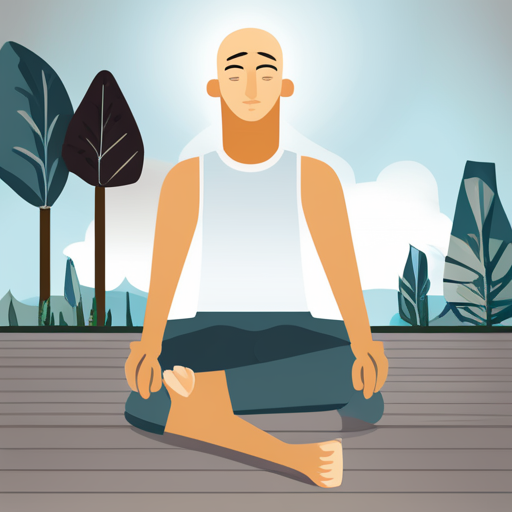
In today’s fast-paced and demanding world, it’s no surprise that stress has become a common part of our lives. Whether it’s work pressures, relationship challenges, or financial worries, stress can take a toll on our physical and mental well-being. While there are various ways to manage stress, natural remedies have gained popularity for their effectiveness and minimal side effects. In this blog post, we will explore the best natural remedies for stress relief, providing you with practical strategies to relax and recharge.
The Impact of Stress on Our Health
Before diving into the natural remedies for stress relief, let’s first understand the impact of stress on our health. Chronic stress can lead to a variety of physical and mental health issues, including:
1. Increased Risk of Chronic Diseases
Studies have shown that prolonged exposure to stress can contribute to the development of chronic conditions such as heart disease, diabetes, and obesity. The constant release of stress hormones, such as cortisol, can disrupt the body’s natural balance and weaken the immune system.
2. Mental Health Disorders
High levels of stress are often associated with the development of mental health disorders like anxiety and depression. The constant feeling of overwhelm and pressure can negatively impact our mood, emotions, and overall mental well-being.
3. Weakened Immune System
Stress weakens the immune system, making us more susceptible to infections and illnesses. It impairs the body’s ability to fight off pathogens, leaving us vulnerable to frequent colds, flu, and other infections.
4. Sleep Disruptions
Stress can significantly disrupt our sleep patterns, leading to insomnia or poor-quality sleep. Lack of sleep further exacerbates stress levels, creating a vicious cycle that can be challenging to break.
Natural Remedies for Stress Relief
Now that we understand the negative impact of stress on our health, let’s explore some effective natural remedies for stress relief:
1. Exercise Regularly
Physical activity is not only beneficial for our physical health but also plays a crucial role in managing stress. Engaging in regular exercise releases endorphins, also known as “feel-good” hormones, that boost our mood and reduce stress levels. Aim for at least 30 minutes of moderate-intensity exercise, such as brisk walking, jogging, or yoga, on most days of the week.
2. Practice Mindfulness and Meditation
Mindfulness and meditation techniques are powerful tools for stress reduction. Taking a few minutes each day to focus on the present moment can help calm the mind and reduce anxiety. Try incorporating mindfulness into your daily routine by practicing deep breathing exercises, guided meditation, or mindfulness-based stress reduction (MBSR) techniques.
3. Get Sufficient Sleep
Adequate sleep is essential for our overall well-being and stress management. Lack of sleep can exacerbate stress levels and make it more difficult to cope with daily challenges. Aim for 7-8 hours of quality sleep each night by establishing a consistent sleep schedule, creating a relaxing bedtime routine, and optimizing your sleep environment.
Healthy Lifestyle Habits for Stress Management
In addition to natural remedies, adopting healthy lifestyle habits can significantly contribute to stress management. Here are a few strategies to incorporate into your daily routine:
1. Maintain a Balanced Diet
Eating a nutritious and well-balanced diet can support your body’s ability to cope with stress. Include plenty of fruits, vegetables, whole grains, lean proteins, and healthy fats in your meals. Avoid excessive consumption of caffeine, sugary foods, and processed snacks, as they can contribute to increased stress levels.
2. Prioritize Self-Care
Make self-care a non-negotiable part of your routine. Engage in activities that bring you joy and relaxation, such as reading, taking baths, practicing hobbies, or spending time in nature. Prioritizing self-care allows you to recharge and rejuvenate, effectively managing stress in the long run.
3. Build a Supportive Network
Having a strong support system can provide a sense of belonging and help alleviate stress. Nurture your relationships with friends and family, and seek their support when needed. Additionally, consider joining support groups or seeking professional counseling if you require further assistance in managing stress.
Effective Stress-Relieving Techniques
Alongside natural remedies and healthy lifestyle habits, incorporating specific stress-relieving techniques into your routine can further enhance your ability to relax and recharge. Here are some effective techniques to consider:
1. Progressive Muscle Relaxation
This technique involves tensing and then releasing different muscle groups in your body, promoting physical and mental relaxation. Start from your toes and work your way up to your head, focusing on each muscle group for a few seconds before releasing the tension.
2. Journaling
Writing down your thoughts and feelings in a journal can help you process emotions, gain clarity, and reduce stress. Set aside a few minutes each day to jot down your thoughts, reflect on your experiences, or simply express yourself through writing.
3. Engage in Creative Activities
Participating in creative activities such as painting, drawing, playing a musical instrument, or writing can provide a sense of relaxation and serve as a healthy outlet for stress. Allow yourself to engage in activities that bring you joy and allow for self-expression.
Seeking Professional Help
While natural remedies and lifestyle changes can be effective in managing stress for many individuals, it’s important to recognize when professional help may be necessary. If your stress levels are significantly impacting your daily life, relationships, or mental well-being, consider reaching out to a mental health professional. They can provide guidance, support, and evidence-based interventions to help you navigate and overcome stress-related challenges.
Conclusion
In conclusion, stress is a common part of life, but it doesn’t have to control us. By incorporating natural remedies, adopting healthy lifestyle habits, and practicing stress-relieving techniques, we can effectively manage and reduce stress in our lives. Remember to exercise regularly, practice mindfulness, get sufficient sleep, maintain a balanced diet, prioritize self-care, and build a supportive network. If needed, don’t hesitate to seek professional help. By taking proactive steps to address stress, we can achieve a greater sense of well-being, improved health, and a more fulfilling life.